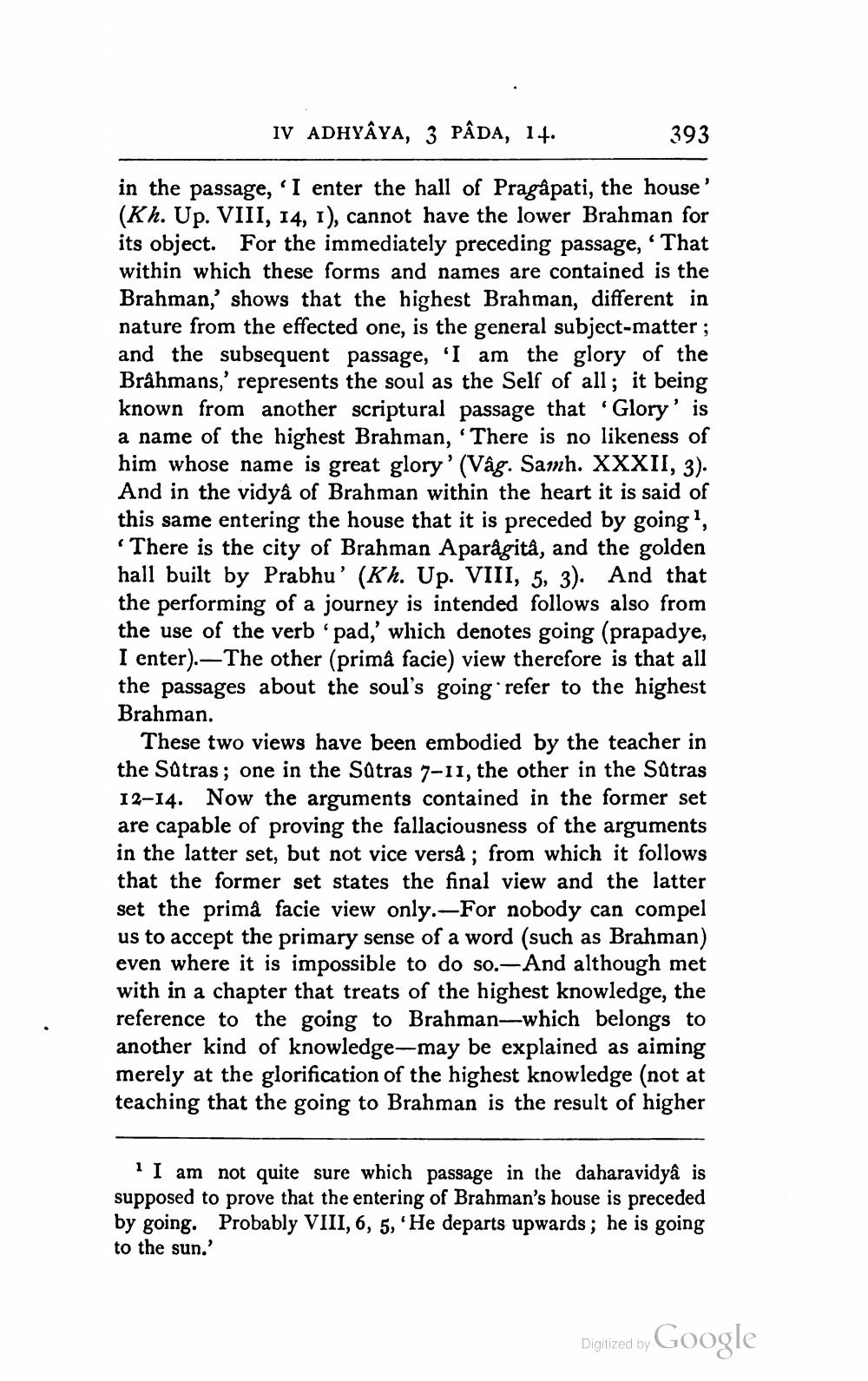________________
IV ADHYAYA, 3 PÂDA, 14.
393
in the passage, 'I enter the hall of Pragâpati, the house' (Kh. Up. VIII, 14, 1), cannot have the lower Brahman for its object. For the immediately preceding passage, 'That within which these forms and names are contained is the Brahman,' shows that the highest Brahman, different in nature from the effected one, is the general subject-matter ; and the subsequent passage, 'I am the glory of the Brâhmans,' represents the soul as the Self of all; it being known from another scriptural passage that Glory' is a name of the highest Brahman, 'There is no likeness of him whose name is great glory' (Vâg. Samh. XXXII, 3). And in the vidyâ of Brahman within the heart it is said of this same entering the house that it is preceded by going 1,
There is the city of Brahman Aparågitá, and the golden hall built by Prabhu' (Kh. Up. VIII, 5, 3). And that the performing of a journey is intended follows also from the use of the verb 'pad,' which denotes going (prapadye, I enter).—The other (primâ facie) view therefore is that all the passages about the soul's going refer to the highest Brahman.
These two views have been embodied by the teacher in the Satras; one in the Satras 7-11, the other in the Sätras 12-14. Now the arguments contained in the former set are capable of proving the fallaciousness of the arguments in the latter set, but not vice versa ; from which it follows that the former set states the final view and the latter set the prima facie view only.--For nobody can compel us to accept the primary sense of a word (such as Brahman) even where it is impossible to do so.-And although met with in a chapter that treats of the highest knowledge, the reference to the going to Brahman—which belongs to another kind of knowledge-may be explained as aiming merely at the glorification of the highest knowledge (not at teaching that the going to Brahman is the result of higher
I am not quite sure which passage in the daharavidyâ is supposed to prove that the entering of Brahman's house is preceded by going. Probably VIII, 6, 5, 'He departs upwards; he is going to the sun.'
Digitized by
Digized by Google




